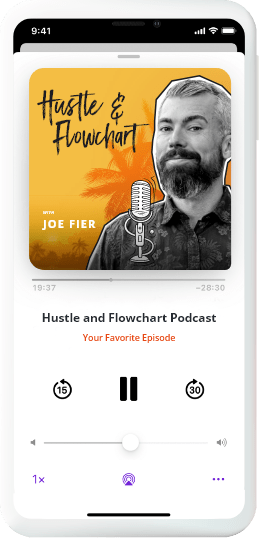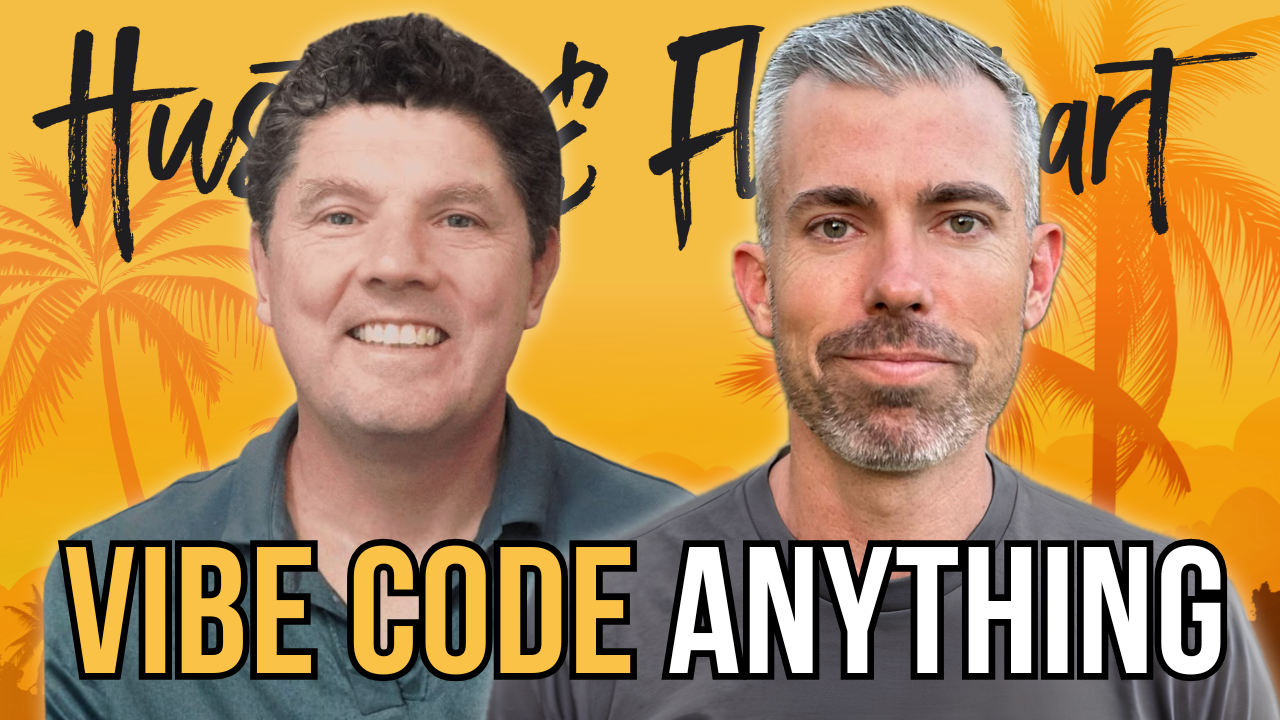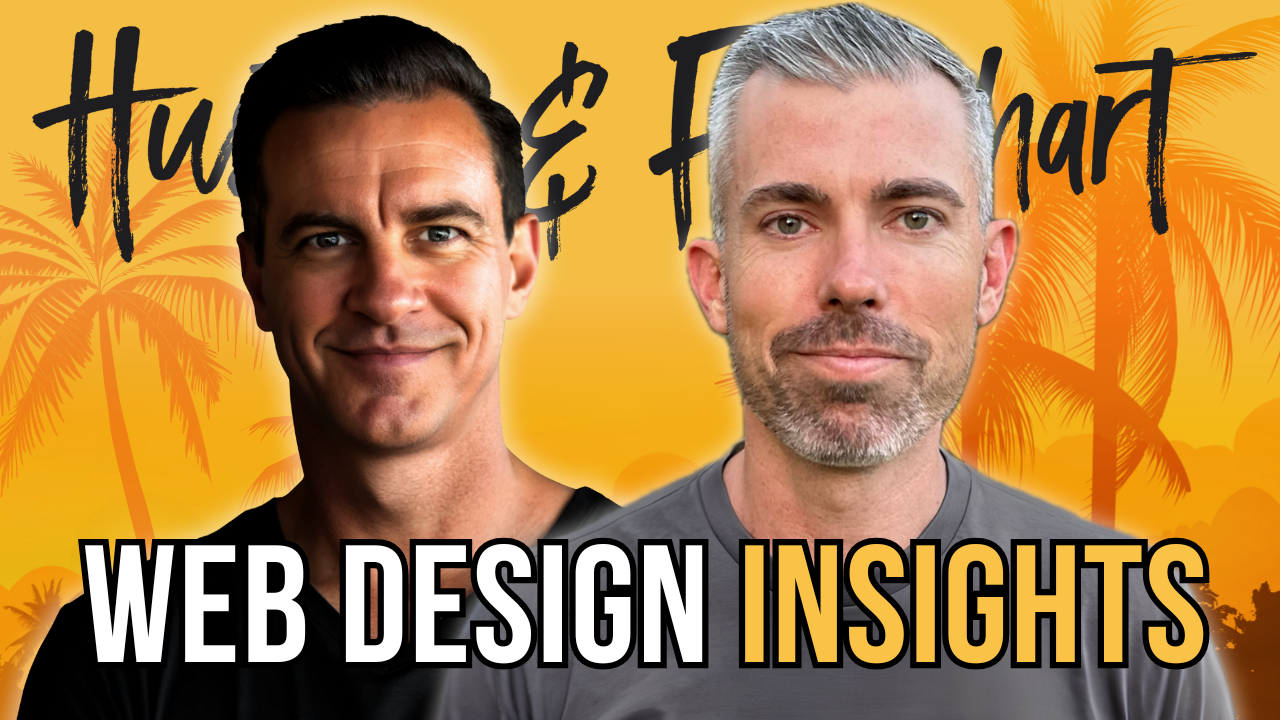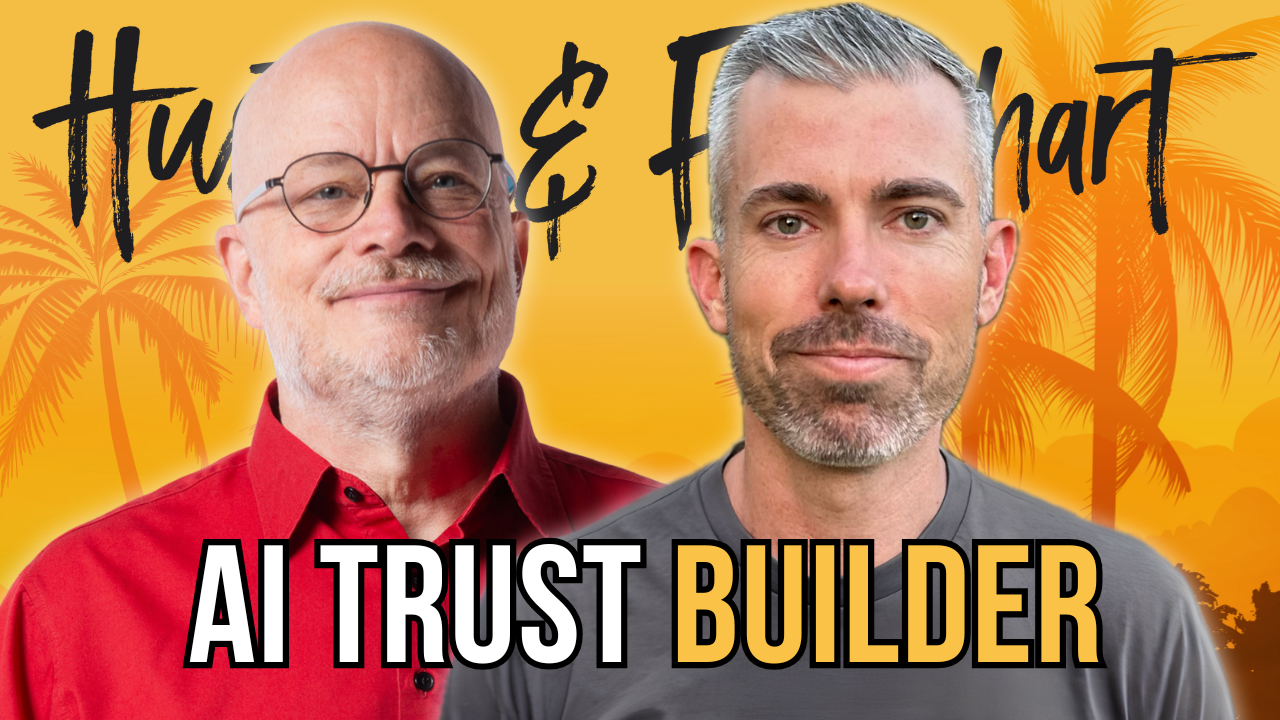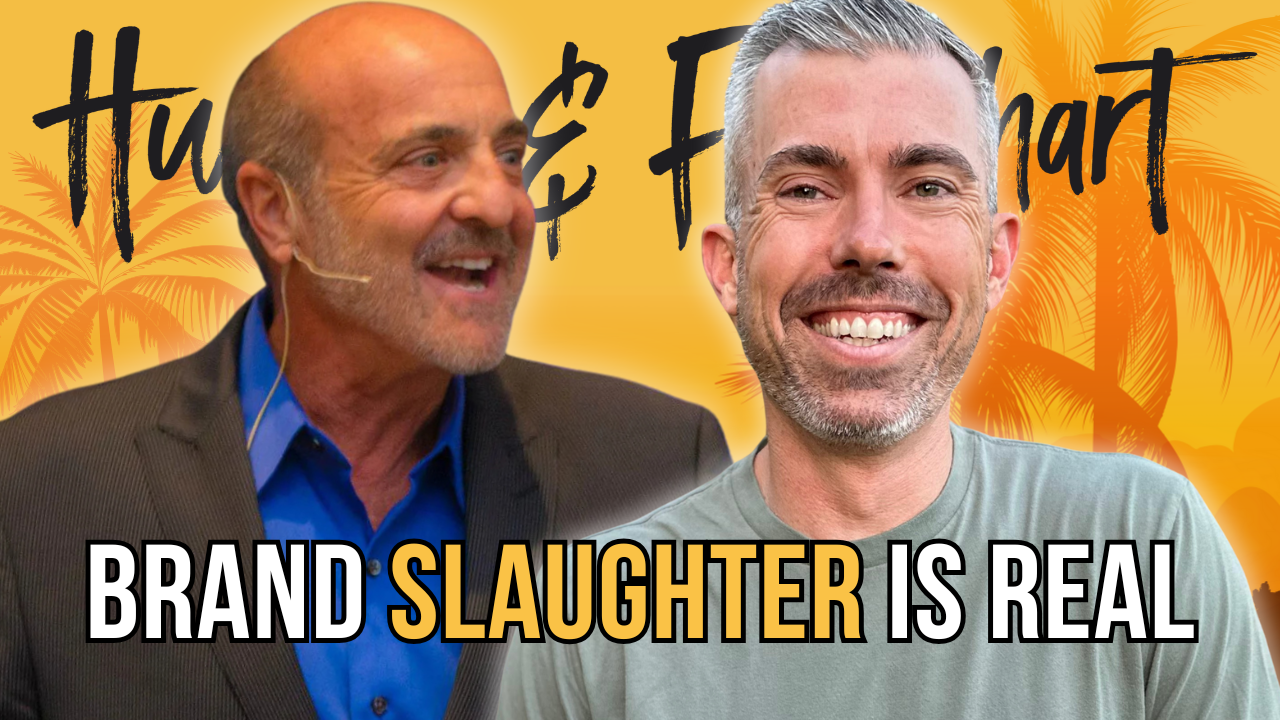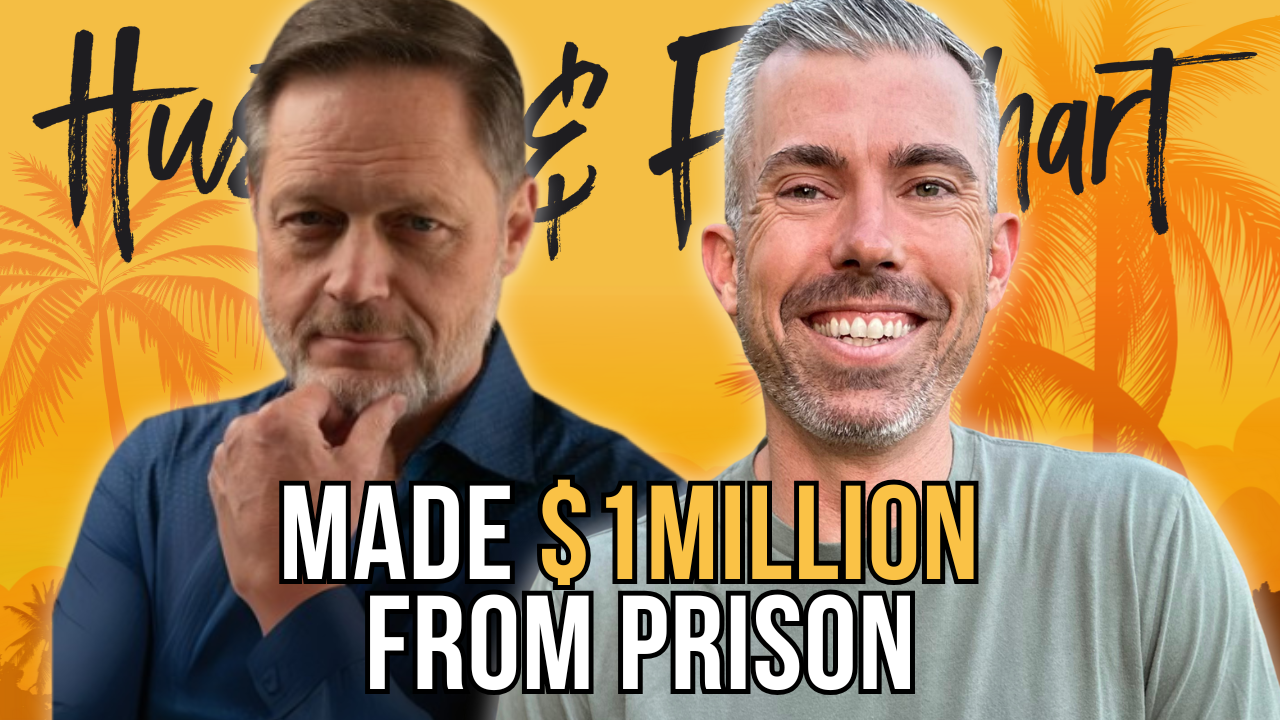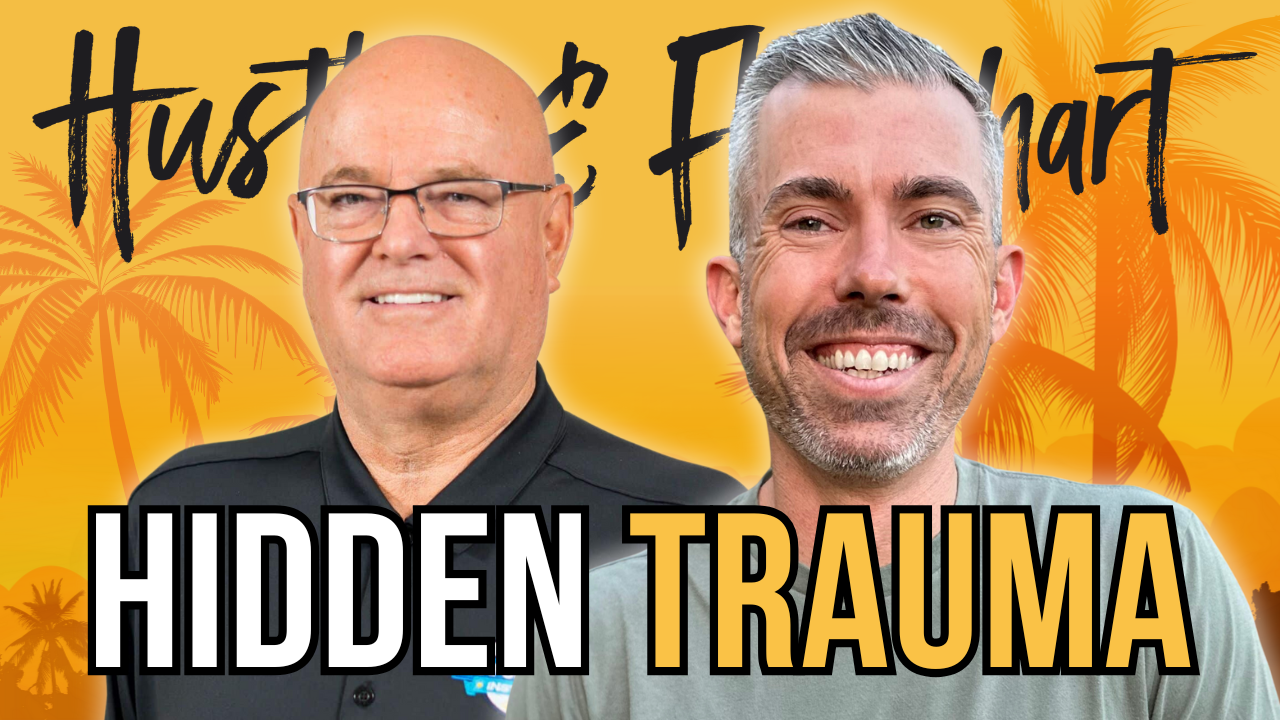Have you ever been a witness to “the moment?” It’s that moment of clarity in life when your state of health or misalignment with your business methods as a solopreneur takes you from broke to brilliant. Tim Francis and his journey are living testimony to the colossal impact of lucid thinking.
Tim’s story began like many other entrepreneurs. He grew his business beyond his ability to get things done and took on an assistant to help him scale. He searched all the greatest places for “inexpensive” virtual help, from India to Russia, and most places in between. The problem was the time it didn’t save him and the quality control he couldn’t have.
So, one after another, Tim got frustrated with his hired help and ended up taking back over “task” work and the grind went from 70 hour work weeks to 90 or more hours. Soon after entered the loss of clients’ capital in the stock market and real estate crash of 2008, hiring the wrong and extremely expensive “entrepreneurial” mentor, and a seriously painful illness that landed him back in his parents’ home recuperating. This was exactly what he needed to get to his own “moment.”
Listen in to hear more about Tim’s mindset shift from consumer to producer, advice on how to hire the right people at the right time to grow and scale your business, and how to think of your newfound assistant as a revenue stream instead of a business expense. If the takeaways in this episode resonate with your current state of systems or team building, be sure to check out tips from Samantha Riley and Josh Bartlett too.
There’s no leverage here. If there’s no return on my time, energy and money, why would I even bother…?”– Tim Francis
Table of Contents
ToggleSome Topics We Discussed Include:
- How to save 50-100 hours as an entrepreneur looking to hire your first or next staff member
- Are timeshare scooters the new Lamborghini?
- Speaking of Lambos, what is Matt’s definition of entrepreneurial success?
- Stop using this as a measure to define your worth as an entrepreneur and mindset shifts about delegation can happen
- Guess who used to believe personality test tools were like horoscopes?
- Tips to unpack your brain
- Is a shift from consumer mindset to producer mindset required to succeed in business
- How did solo business owners fall victim to consumer mindset in the first place?
- The three magic steps to 360 Delegation you can start right now
- Best tips for the DIY entrepreneur who chooses to run the hiring process by himself or herself
- The hiring process and the importance of psychometric tests
- Why Kolbe is a highly effective tool for finding the right fit for your next valuable team member
- These are the only three ways an entrepreneur should allocate their time during work hours to properly leverage, earn, grow and scale their businesses
[adrotate group=”3″]
Contact Tim Francis:
- Visit Tim’s website for free resources or to book a call
- Follow Tim on Facebook
- Watch and learn from Tim on YouTube
References and Links Mentioned:
- Great Assistant Toolbox
- Great Assistant website to book a consult
- Kolbe test
- The 4-Hour Workweek by Tim Ferriss
- The Millionaire Fastlane by MJ DeMarco
- Work The System by Sam Carpenter
- The E Myth by Michael Gerber
- Essentialism by Greg McKeown
- The One Thing by Gary Kelle
- Samantha Riley – A 9 Point Process To Take A Business To A Million And Beyond
- Josh Bartlett – How To Build A Solid Team And Create Rabid Fan Customers
- Ready for some help on deciding your next best step to delegate, grow and scale your business. Check into the Advisory for direction.
Subscribe & Review The Hustle & Flowchart Podcast
Thanks for tuning in to this week’s episode of the Hustle & Flow Chart Podcast! If the information shared in these weekly conversations and interviews have helped you in your business journey, please head over to iTunes, subscribe to the show, and leave us an honest review. Your reviews and feedback will not only help us continue to deliver great, helpful content, but it will also help us reach even more amazing entrepreneurs just like you!



Transcription
Matt: Hey Tim, thanks so much for joining us. How are you doing today?
Tim: Fantastic. The Sun is shining here in Austin, Texas. [J]
Joe: As it is here in San Diego.
Matt: San Diego right now is a very, very hot, but my office is nice and cool. So we're okay.
Joe: Is Austin, is it pretty sticky this time of year out there?
Tim: Oh no. I mean it's hot. It gets up north of 100 Fahrenheit and I'm and not too humid so far so I'm happy about that.
Joe: Yeah. See I was having here complaining about 100 and it's just like every day for you guys.
Tim: All we do is we jump on the little scooters, the motorized scooters, like the Lime or Bird scooters.
Matt: Yes. We love those.
Tim: And like I, no kidding, I did 19 board meetings last week and a half in a suit and all the rest and I get on these Birds scooters or Lime scooters and first of all you're not expending any energy, which is great, so you're not going to sweat from your internal heat. Secondly, all the wind going past your body just keeps you cool.
Joe: You just keep going to go faster and faster.
Matt: Austin's a pretty perfect place for that because Austin is fairly flat too, isn't it?
Tim: Fairly flat and the downtown is like very tight so I mean it's not like San Francisco type but it's like I can get to anything I need to in like less than 10 minutes walking. So Birding or Liming all over the place is like super fast.
Matt: Are those verbs now? Are we making them verbs now?
Joe: We definitely will be.
Tim: My life is full of Liming and Ubering.
Joe: It's funny you say that because I think the first time we met up with you officially it was in San Diego earlier this year, Traffic & Conversions, Brad Costanzo came over, a mutual buddy and he Birded away. I think he was in a suit or at least a tie or something and I was just like, this is the weirdest looking thing ever. And he was just like, bye bye fellas. Yup, there we go. Cool man. Well, yeah, I guess let's kick this thing off. We met, you know, the three of us at a Rise 25 event in San Diego prior to TNC and I think it was Jeremy Weiss, right? He was the one that actually told us to chat with you guys, you and your crew. It was like see those guys over there, that crew. Approach them, they will give you your sage advice. But since then we've opened up so many big a-has and totally revolutionized the way we work. Matt and I, but also with our team systems, all that stuff… goals. So, thank you for that for one, but give us a little backstory to just where you came from and then where you're at now.

Joe: You're welcome. Thank you.
Tim: So many years ago, probably 10 plus years ago, I was sitting in the basement of my townhouse up in Canada and I had three roommates to help me cover all my bills and I was happy you guys because I was free.
How To Call In Help To Grow Your Business
Tim: I was a full-time entrepreneur, and it was just like, in a little way, it's like I've made it. I didn't have a nine to five anymore and the world just seemed like unlimited. As my business started to grow and I got more clients at the time I had a marketing company and I was excited to see new clients and new money come in. However, I didn't expect this shadow side to start popping up even bigger all the time. It was all the minutia invoicing clients and uploading podcast episodes and dealing with tracking codes and landing pages and a lot of the like not sexy stuff that was fairly rinse, wash, repeat. It really, really, really started to bog me down. And what originally felt like freedom, my business is now starting to feel like a prison and I was just like oh, this is no fun.
Tim: Right? This is no fun. So, and this is really not what I signed up for it. So, so I got this idea because I'd read a book called the four hour work week that I'm just going to get an assistant overseas and viola, everything's going to be fixed, right? I'm going to be in the promised land. My Indian assistant is just going to like take care of everything and I'll get back to making money in the ATM in the sky is just going to rain money on me. It's gonna be fantastic. So, I got my assistant in India and she was actually, she had Great English, super good person, super talented. She was committed, it was all fantastic. But then a few of the challenges of overseas started to pop up. Notably, there was one week when she just disappeared altogether. And I had no idea where she'd gone.
Tim: Yeah. Okay. So it turns out that there was a political dispute and the politician for her neighborhood got in a fight with a rival politician, a politician who turns out he actually controlled part of utilities or something and he actually had the electricity turned off to her neighborhood. Just think about living in that circumstance and trying to create a living. That's it. There's so much. We are so lucky to be where we are. There's so many things we don't even have to think about. Like water that runs, electricity that works, like you flip a switch and the thing turns on, right? So, that was my first aha that overseas maybe it was not everything that it was cracked up to be and you know, over time I tried the Philippines and I try for four bucks an hour and I tried Pakistan and Jamaica, in Russia and just all over the world.
Tim: And I really just, I just really got frustrated, especially also with the fact that it would take me like 20 minutes to explain something that would take me just five minutes to do myself. I'm like, what? There's no leverage here. Like there's no return on my time, energy and money. Why would I even bother having an assistant? So I kind of developed this John Wayne attitude of like, well I'm just gonna do this myself. I can do it better, I can do it faster. I don't screw it up and you know, I don't have to worry about managing anyone else. So I went back to doing it all myself, which was Great to relieve some of the frustration. However, my work weeks went from 70 hour work weeks to like 90 hour work weeks because now I'm doing everything myself again. And I was good to grind that out, like, you know, #respectthegrind, you know.
Hard Work Has Its Drawbacks
Tim: That's, what Gary V says to do anyways. So I was just like, oh, you know, hustle, hustle, hustle. So, you know, unfortunately, the human body has its limits and, and not only was I getting really exhausted with just like 90 hour work weeks every single week, I actually had a few stressful things happen. Notably the real estate market corrected in 2008. I lost around $100,000 of other people's money. I had to figure out how to pay that back. And someone that I thought was gonna be a Great teacher, a mentor to me, told me $20,000 if I paid him that amount, then he would give me all of his, like ultimate secrets to being a Great entrepreneur. And that ended up being a bust. Then I was down $120,000 and I had like kind of no way to pay it back.
Tim: So it was a super stressful time. And with the stress plus exhaustion, I developed an illness called Erythema Nodosum and Erythema Nodosum, it starts in your legs and it kinda creeps up through your body and it'd be like if you rolled your ankle playing basketball, but it was like you rolled it like five times in a row, just kept mashing on it and like the amount of swelling, like I had, like grandma cankles, you couldn't tell where my calf ended, my ankle started and, and that just kind of spread up through my legs and it actually went to my elbows as well. And I had no choice at age 27, 28 to just move in with my parents again for full time care. I couldn't work anymore. My business went to zero, thankfully not bankrupt. And my personal finances also went to zero. Well actually it was like negative.
Tim: Actually, both were negative 120 grand right? Business debt. And had my mom not paid my mortgage for me for three months, I would have gone bankrupt. It was that close. So as I was laying in bed day after day, I couldn't even use a laptop because my elbows were just so painful and so I just laid there and thought I just thought about life day after day, week after week, month after month and, and there was this one day, you guys, this is like one day I'll remember it for the rest of my life. And I was like, I felt this warmth in my body and I heard this voice and it was, it was quiet, but it was unmistakable and the voice said, Tim, is this what you really want? And guys like that day, like I think I met God, it was, it was like, it was.
Tim: So it was like a moment that I wouldn't have been able to hear had I been caught up in my day to day. It was like I needed to be stopped and still for weeks on end just to have that, like kind of like connection to the divine. And as I felt that question and heard that question like I don't know if a second went by or a minute or an hour. It was like one of those times in life when just like, just like existence stood still and then there was another voice even more quiet even more… It was actually like meek it was like a weak and meek voice and that voice I realized later was my own and I said, yes, this is what I want. And in the days that followed after that, there were like all these dominoes started falling in my head and my heart, my soul, my spirit.
A Moment Of Clarity
Tim: And I started to realize that up until that point I'd been chasing fame and fortune. I just wanted to be rich and famous and I wanted every shortcut possible. I wanted every hack. I wanted every 80/20 shortcut I wanted like just to like skip the shitty part and just get the good stuff. I was trying to cheat the process and it dawned on me that actually, it was through the process that I would end up getting everything I ever wanted in my beingness and my doingness and in my having. And, in that moment it was revealed to me that for me, if all I got to do for the rest of my life was good, a little bit better at entrepreneurship with every week that went by, that that would be one heck of a life to live, even if I never was rich, even if I was never famous.
Tim: So I got to work as soon as I could kind of like type again. I started learning about digital marketing, started taking on a few clients, not because I wanted a digital marketing agency but because I just wanted to get better and I wanted to practice and get a few dollars along the way doing it. And then my business started to grow and then I was like, oh my goodness, I need some help. And then I hit that same plateau again. Am I going to go overseas? And I was just like, oh my God, we're here again. This time was different though because number one, there is no way I was going to sell myself short or sell my dream short. When I was sick, I saw this quote, the quote said, hell is meeting the men I could have been. Hell is meeting the man I could have been, and I just went, there's no way I'm selling myself short.
Tim: When the end of my days come, I'm going to meet the man. It could have been. I'm going to be like, I know you because you are me. I will fulfill my potential in this lifetime as a man, as a son, as an entrepreneur, all the roles that I play, I will fulfill my potential and, and if that means that I need to have to learn how to level up, how I find people, how I hired them, how he lead them, how I manage them, and so be it because there's no turning back on my potential and my dream and there's also no turning back on me growing this company. And so in that moment I said, you know what? I don't know how I'm gonna afford a North American assistant. They're definitely more expensive than overseas assistants. I don't even know what I'm going to delegate to them first.

Tim: And they all said yes. So people that we were doing pay per click for, they were good for us to do their landing pages and people that we were doing ppc and landing pages. They were good for us through their website, their full website and those and that would graduate into email marketing and then tracking and reporting and on and on and it just grew and I was generating more and more and more $40 an hour work for myself and paying Sarah Between 15 and 20 an hour and now there is this spread, almost an arbitrage of labor where I could make 40 and spend 15 to 20 make 40 spend and that spread now gave me not only my time back because service doing so much for me but also has given me more money and I can take that time in that money and now I could go and network at higher level events for higher level entrepreneurs.
Tim: We're so I could charge more for the exact same services and it also allowed me to go and take other courses that allowed me to get better at what I do. Which then allowed me to increase my hourly rate. And I mean whether someone has a consulting business like I did or not. Whether someone has an agency or not. Whether someone has an e-commerce business and Amazon store or a brick and mortar, I mean that is the essence of entrepreneurship is the leverage when we can put an hour or a dollar in and get multiple hours back and multiple dollars back. I had finally put like, I call it the positive profit loop. I just did a video for Forbes on this like literally three days ago and I watched my hourly income go from 40 bucks an hour to 50 to 100, 2:50 to 500 to a thousand dollars an hour and it's still climbing to this day and as that, as that spread grew, now I had just way more cash to be able to go to invest in other team members and other software joining high level masterminds and advisory boards and on and on and on.
A New Business Model Is Born
Tim: The business just flourished. And so along the way, a lot of my entrepreneur friends are just like, good Lord man, how are you doing this? And how did you find such a great assistant? And so I was just helping entrepreneurs one by one and then I just kind of looked around and I said, you know, there are other assistant companies out there, but none of them, none of them do it the way that we do, which I believe is the total solution. And so I should just start a second company. So I hired five people, started a company called Great assistant and we've now helped over 150 entrepreneurs. I'm sorry, 150 assistance with entrepreneurs and, and here we are today. So it's been, it's been just such a journey of the outside for sure as far as like learning skills and tools and you know, people on the outside of me ultimately it's just, it's been just as much a journey of the inside though, like a journey of maturing, a journey of saying, Hey, I'm, I'm done fooling around with amateur hour, it's time to be a real deal entrepreneur and I'm willing to do the heavy lifting to get there.
Tim: And I'm also, I'm also like surrendering, if you will, to my business. Like, it's insane when people say, I don't really feel like doing that in my business. That's like saying if you've got a baby crying in the night. Like my mentor Keith Cunningham, one of one of my mentors, I keep getting him, he always talks about this. He says if your baby's crying in the middle of the night, you don't get to say I don't feel like you just, you take care of it because that's, that's just part of the territory of having a, of having a child will. Part of the territory of having a business is there's just things that need to be done and certainly, over time we want to work to build a business where we are spinning almost if not all of our time in our zone of genius doing work that fills us up and feel inspired to do for sure.
Tim: In the meantime though, like that's like saying I want the baby, but I want the baby to be already 25 years old. It's already gone through college. I don't have to pay for it. No growing pains and there is no college debt. That's insanity. Right? We, there's some steps we need to go through to get to the 25-year-old kid and, and that, that is the same with the business and within assistant is we just need to do some lifting in the meantime and it's actually good for us. Nobody can do our pushups for us to, to externalize what we see in our heads and to get it into someone else's hands and to let them be a teammate with us. So just to wrap that up, I, I just, it's been a journey of the outside and it's been a journey of the inside.
Joe: I think that's the big thing. The insight is what's interesting because it does start on the inside for you. You had your own personal story. We've been there as well where, you know, it's either a burnout or you know, kids come into our lives a, your priority shift your time, you know, constraints go a little tighter and then it kind of more or less forces you to think differently and to reflect. And where would you recommend that, you know, because everyone has all these journeys, is there like a consistent point where people kind of, I don't want to say break but start that mental shift or can we, is there a catalyst that can get them to that point quicker?
Tim: Right. So the question is, is there, are there some telltale signs of when someone should get an assistant or more so when they're mindset is ready to, you know, to build a team and into kind of like surrender to the business.
Joe: It's more of the mindset is I would think step one and then the assistant. Yeah. Step two.
From Consumer To Producer
Tim: Well, okay. So I think a book that, that nailed this better than any book I've read so far is a, MJ Demarco is millionaire fast lane. And, and in that book he describes that there's two different mindsets. There's the producer mindset and there's the consumer mindset. And the consumer mindset is how much can I buy? How much blink and I have, how much your vehicle can I drive? How much house can I own? How much party can I consume? Like, and it's about consumption, consumption, consumption, like all the things you spend money on and that can be a way to go through life. It's just a vastly different reality than someone who has a producer mindset and that producer mindset is how can I build things, how can I create things, how can I offer things for value to the world, including the business world.
Tim: And I think that those are the two mindsets and I think there's a lot of really well-meaning entrepreneurs, my former self-included who deep down inside wanted to produce great things and do good by our customers and whatnot. However, our thinking just got polluted by consumption mindset and maybe we just didn't realize there's a difference between the two. And so, you know, when our thinking is confused, it's kind of like if you've ever gone skiing, whether it's snow skiing or water skiing, you know the second that those two boards underneath your feet, the two skis, you know, if they start to cross it is, it is like face straight into the snow or the water immediately. If your feet start to split good God help your groin, it's not going to end well. Right. So that alignment, that alignment of the skis being in the right direction and not confused really just funders to get us to where we want to go and I think that you know, be it because of media or because of all the hype on the Internet these days, Youtube, Facebook, Instagram and whatnot around live the Lamborghini lifestyle, live the laptop lifestyle, et Cetera, et cetera.
Tim: Our thinking has been polluted into hey, consume, consume, consume, consume, consume buy my $67 course. And that course might be a part of the path, but it's not the whole path. And so when someone gets frustrated at the end of the $67 course that like, oh, how come I don't have like five strippers hanging off me a Lambo and a house in Hollywood Hills. How come that hasn't happened yet? And it's like, well, because there's a little more to it then you know, the $67 course.
Joe: So you just crushed Matt's dreams by the way.
Tim: Oh, I know you guys, I know you far too well to know that you guys are past that stage I think. I think it's just a thing. It's just a maturity thing, you know what I mean? Like at some point every one of us wanted to be a pro athlete or something like that and for some of us that happened and some didn't and that's that and so, okay, next, what's the next chapter? And I think that until someone is ready to be in the producer mindset, there's almost nothing that I can think of to say or do to get them to switch over. Like I think I think the best teacher is reality and I think that when a person has been in the consumption mindset long enough and their credit card bills are big enough and like at some point you just kind of get to your knees and just go like, oh my God, this mindset is not working. I need to shift. And that shift is from consumption mindset to producer mindset.
Joe: It makes sense.
Matt: I love that.
Matt: I love it. Now when we started working with you now the process of the whole Great Aassistant thing, which we're going to get into in a little bit, but the whole starting point behind it was through this assessment called the Kolbe and the first time I actually ever heard of the Kolbe to be quite honest was, I was listening to a podcast by a guy named Mike Dillard and there was a guest on their named Tim something or other, and he was on their explaining what the Kolbe was. No, I actually heard your podcast on Mike Dillard's show and I heard about the Kolbe at that time and my thinking about the Kolbe was, you know what, I really don't like the concept of these assessments because to me this is a self- fulfilling prophecy thing. You know, if this assessment tells me I'm this way, then maybe I'll be more of that way and then it might steer by brain towards being that person that the assessment tells me I should be. But you know, we trusted the process. We took the Kolbe. The results were really amazing and eyeopening and I went, Holy Shit. Yes, this just described me, but can you touch on what the Kolbe is and why you think that it's important for pretty much everybody to take?
A Bit About Kolbe Testing
Tim: Yeah, so, so I mean the Kolbe is a tool within a wider constellation of tools if you will. Some tools are better and some are not. Some have test, retest, reliability, others do not and some are domain specific. Some will tell you how you operate just in work or just in your family or just you know, in your private time versus public time and some are more not domain specific, right? So, I just want to make sure that I'm not creating a perception that one tool fits all, if that makes sense. I think how the Kolbe is really unique is it has a 94% test reliability. So if you were to take it now and then you took it again in five years, it'll be like within one point on each of the four modes is what it's called because like a Kolbe score, like mine is seven, six, three, five.
Tim: So that's a Kolbe score. And there's really three circles. I learned this when I did the Kolbe certification courses. There's three circles that contribute to someone being a Great fit for a role and in that includes like the assistance that we hire or the salespeople that we hire or even how we interact with our own jobs and in businesses. And so the first circle is what most people think of when I think of a psychometric test is actually the thing about a personality test and a personality test would be something like Myers Briggs. And so I'm an EMTJ or I'm an EMFJ or something like that. And the value from what I can tell, it seems like most of the assessments out there fall in that personality realm. And so that's like, what are your goals, dreams, desires? Are you extroverted or introverted?
Tim: That's very much in that first circle, which is all the affective realm. So then the second circle is more like a person's intellect. So reading, writing, arithmetic and reasoning. And so one of the most famous tests in that ballpark is an IQ test. An LSAT to get into law school is also very much in that realm as well and if you think about it, most of the hiring processes that you've gone through maybe in your lifetime and, or you hear about from a big mega-corporation like Apple or Coca-Cola or whatever. There's a lot of interviewing and there's also looking at a resume and a resume, talks about our experience and our past which tells us a fair bit about the first circle which has an effect and possibly also their intellect, which is the second circle.
Tim: And it might also tell us a lot about their personality, like in an interview, is this person personable? Are they outgoing and whatnot. What's totally missing from most hiring processes is this third circle, which is what is a person's working instinct. So whether a person knows how to paint a house or change oil or set up Facebook ads, you know, which is their skill in circle two. And whether they're outgoing or introverted, whether they're highly motivated or not, which is circle one, how does this person solve problems? What is the wiring of their brain for solving problems and accomplishing goals. And that's the third circle, which is called conation and that's what the Kolbe test measures. And so somebody who is an entrepreneur, like the typical entrepreneur's score, which is more so Joe, is much more about let's throw some spaghetti on the wall and see what sticks.
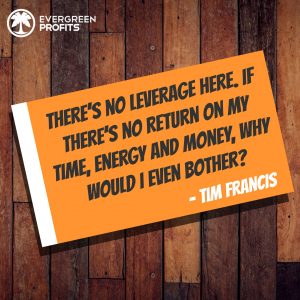
Tim: You've got a lot of the similar skill sets, you've got similar personalities, you're super nice guys, super outgoing, you're hilarious, right? So your circle one and circle two have a lot of similarities, not identical, but a lot of similarities. You guys have similar motivations, similar goals, so like everything's aligned. However, what's completely and what is very different is the third circle, which is your working instinct and that's part of what makes you guys such great partners is one guy's a strong starter and the other is a strong finisher. One guy's a great visionary, the other guy's a great implementer right? And, together you're able to plug in. And oftentimes what happens is we as entrepreneurs and leaders is, we will unwittingly unconsciously hire someone who's the same as us. And that can be great if we're saying, oh, they're outgoing and I'm outgoing, so we're going to get along in our meetings.
Tim: They know how to do Adwords and Facebook ads and landing pages, and I do too, so we'll be able to speak the same language and I can probably hand some things off to them. If, however, we're both visionaries that come up with a million ideas a minute and neither of us has the follow through energy to actually complete things will have a great time brainstorming, nothing's gonna get done right or vice versa. If we were both really Great implementers, like everything would be super smooth, but the business would never grow because there'd be no new ideas. Right? So it's just one of those things whereby understanding of persons working instinct, we can now strategically and methodically click the right people into the team at the right time so that this thing is not just magnifying the problems that it already has and magnifying the strengths that it already has, but instead getting the right jigsaw puzzle pieces together. Does that make sense?
Delegation Versus Decision Making
Joe: That's perfect sense because this did open up because I feel, or at least for us it was great to first understand ourselves, so us individually taking the Kolbe, it was very quick thinking it totally took like 20 minutes maybe and then you know, you get this report. Great. I actually have ours open right now, but 18 pages and just that alone you're going to figure out how to communicate with others what your are. Yeah. And like you said, simplify, adapt, innovate, restore. But all these things kind of have more meaning when you start to apply it to your life or your business partner, you understand how they work, how they communicate, but then like you just touched on how, like what, what other person can you add into the mix that can shore up maybe something that's lacking or maybe support some tasks or project or something in your business with very similar strengths are I guess, I don't know. How would you describe that? Let's talk about an assistant now. You test everyone you screen. How would, I guess I'm curious, how you match these? Like what are you looking for?
Tim: Okay. Yeah, so I think that I think that one of the, I think one of the most important elements to all of this is us as the entrepreneurial leader. How are we viewing the situation? So let me, let me unpack that a little bit. If we were to say the wide and large process of surgery, if that was just one big project, it would be impossible to actually delegate anything to anyone and the surgeon would be stuck getting all the paperwork, setting up the room, performing the surgery, cleaning it up, arranging the money and blah, blah, blah, blah, blah, blah, blah, blah. As soon as we unpack surgery though, into all the sub-steps and we've got a medical records person who's taking care of the records, we've got a financing person to deal with the money. We've got a, a prep nurse.
Tim: We've got a nurse practitioner who's getting the patient ready and we've got a, a surgery nurse who's making sure the room has all the right tools and an and an end. Now we can break this thing into a ton of smaller pieces and now we can delegate it to the appropriate people for every role. So the world is literally a better place, a better place if we can save more people's lives and, and how we can sell saved more people's lives and improve their quality of life is if more surgeries can happen and more surgeries can happen. If we've got surgeons available to do the surgeries and we've got surgeons available to do surgeries as much as possible. If the surgeon is only doing surgery, the surgeon is not prepping the room, is not cleaning up the room, is not doing like 99 percent of the paperwork, is not taking care of the money.
Tim: Like if that surgeon can literally roll into the room, start surgery, end surgery, sign off on one thing and leave and then go to the next surgery room and do the whole thing again. Not worry about cleaning, prepping, paperwork, all that. The world is literally a better place.
Joe: Yeah, that makes sense. Yeah.
Tim: And entrepreneurs, entrepreneurs spend so much time saying, well, you know, that's not how I would tie the garbage bag to go into the garbage. So I just don't think I can delegate that. They spent… We as entrepreneurs, my former self-included, spend so much time worried about every single thing being done so perfectly that we're missing out on being able to offer surgery to the world like five to ten times more than what we're actually doing right now. So if we can unpack a, whether it's setting up a website or managing a Facebook ads account or conducting a podcast, if we can break it into the sub-pieces and then figure out what parts of that fulfill these three elements.
Tim: I want you the entrepreneur to be doing only strategy, high-level skill, and high-level access. So strategy would be like, okay, where are we going, what's happening? How are we going to make sure you've got the money to do it? Etcetera, etcetera. High-level skill would be like selling. Negotiating, speaking, if it's an Amazon business, like picking products, if it's an agency, then it's like meeting customers and maybe closing deals with them for buying and selling businesses. It's negotiating, right? So whatever the handful of skills that are high-level skill, it took you years to learn and master. Then thirdly, it's high-level access. So if your assistant emailed me personally, I may not reply. However, if you guys email me or text me personally, I'm going to reply because you have high-level access to me. Likewise, a doctor only the doctor can sign off on certain things.
Tim: The nurses can sign off on a lot of things, but the doctor is the only one who can sign off on the final release or waiver or whatever. So that's what I mean by high-level access. So if we can figure out what part of your day and what part of your tasks fulfill high strategy, high-level skill, high-level access, we kind of put a box around that. Now we just need to figure out how we can take everything else and methodically, systematically over days, weeks and months, get that off your plate, off your plate, off your plate, offered plate off your plate, and the way that we know who to give that to is by taking a look at the three circles. I just describe, if we've got something that is like we need a salesperson and they're going to have to deal with a bunch of curve balls and they're gonna have to improvise on the fly and that's a different Kolbe score.
Tim: That's a different skill set and that's a different personality compared to once you've already made the sale and we need to now just like send out terms of service and we need to send out an invoice and it's the same task over and over and over and over again. That's a different skillset. That's a different personality and again, that's a different working instinct and so I think it's about us as entrepreneurs having a vision about what's the next thing you need to get off my plate. That's nonsurgical, right? Or a non-surgeon. And then from there, getting that onto the plate of the right person who's in the middle of those three circles. Does that make sense?
Delegating The Right Tasks
Joe: Yeah, it does. And it relates to what we're talking about right before this is unpacking your brain so you can get to that point that you're speaking about and you know, there's methods like, so Matt and I use Omni Focus. These are for tasks that you know, that we're doing ourself or we need to consult with others and strategy and you know, you have your projects, all that fun stuff. What are some methods that you suggest using to get to that point? Start unpacking?
Tim: Right? So we really want to focus on tasks that are simple to teach and simple to learn tasks that take less than half an hour to get done. This is a huge one. Tasks that happen often if you're going to delegate something that happens like once a year, once a month, that's not the right place to start down the road. You might delegate that. But I mean, we're talking like what happens two to three times a week in your business. Let's focus there. We also want tasks that are not going to cripple the business if the assistant screws them up. So if we've got low-risk tasks that happen all the time, takes less than a half an hour to do. It's simple for you to teach them. Simple for them to learn, oh my God, load them up on those kinds of tasks and guess what? You've got to three hours off your plate like within a couple of weeks.
Joe: It's so cool. Yeah, it's so easy after you just unpack. I think unpacking is that one thing that just it's going to make you feel amazing once you have it on paper and some list or some device there. And then the second part if you, if you match that up with someone who can do that role just as good, better or maybe not as good, but they can grow into it. I mean, like you said, you can't earn that time back, you just saved yourself X.
Tim: Yeah. And, and life doesn't know the difference. Like it's so you know, our bodies, right? You know, if it's like, well I'm on a diet now so that Twinkie didn't count. Right? So like our bodies don't tell the difference between, you know, a, a calorie coming in because we're on a diet or not on a diet. Likewise like an hour is an hour. It really is. And whether we're doing something high value, low value that hour will pass whether we like it or not. And so I think like instead of getting all freaked out about like, what's the best next thing that I can delegate, I say just find something that you can delegate that fits that so you can just get that hour back and even if even if it's like a, it's only a 7 out of 10 perfect fit and there's a lot of like 10 out of 10 perfect fits.
Tim: You're just not seeing yet or you're just not delegating yet. So be it. Get that 7 out of 10 fit off your plate so you can get the hour back and go find the thing that's 10 out of 10. Like, don't get too worried about it. Like, let's just find something that it pretty much fits all the things I just described and let's get busy. Let's get busy delegating that am and just watch like it's, I guess it's progress, not perfection is really what I'm saying. Right? And, and so a tool, once you've identified a task, oh, and by the way, the task can be business or personal if you're spending a lot of time coordinating medical appointments or haircuts or dentist appointments or on and on and on and on, like, like my assistant, I gave her a list of what I call approved vendors. This is another Great tool.
Setting Your Assistant Up For Success
Tim: Create a list of approved vendors. Here's my immigration attorney, my tax attorney here is my accountant. Here's my bookkeeper, here's my dentist, here's my doctor, here's my other doctor, like, and here's my proof… You know, graphic designers, Facebook ads, people, copywriters, whatever. My kinda like roster of people is to find and then create a Google doc out of it. Share that with your assistant. And so when you say, can you please book me into see the dentist? They don't have to stop what they're doing to say, who's your dentist? What's the contact information? No, no, no, no. It's already in their approved list of vendors they can get you booked in and things keep rolling. So, once we unpack and we identify the tasks that are candidates to being delegated, then at that point, this is an awesome tool, it's such an awesome tool, is something called 360 delegation.
Tim: So I invented this just like out of necessity because I was watching how much time was being wasted. I'm in the businesses that I was helping and I knew there were there, there was a better way, like there has to be a better way for people to talk to each other, that we can really get things tight and efficient. So I noticed that there was a ton of time being wasted when people had to stop what they're doing and ask for help or ask for some kind of a resource or ask for help to make a decision. And I also noticed there's a ton of time being wasted when people had to fix mistakes that others had committed or they had committed. And I also noticed that when we got a lot of those problems, the rework and also the changeover ping-pong between tasks that that would delay projects and that would create a third kind of costs, what I call delay of delivery.
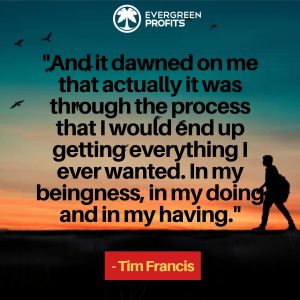
Tim: And that's so huge. You guys is like when, if you want a podcast episode, episode, uh, edited than just like give a link to a podcast episode that was successful if you want an invoice to be sent included an example invoice so people can see what it looks like. Resources is the second part of 360 delegation and that's where we're saying here's all the resources you need, including you know, a training on how to make certain decisions. Like if this then that it's including here's the money that you might need. Like maybe it's access to a credit card or you know, credits for iStock photo. It could be anything in there. And then last is definition of done is how do we know this thing is complete? Like where are we storing the finished files? Is there like, do you need your assistant to check with you to double check their work before it goes live?
Tim: Do we need to check against the contractor and the client to see if they're happier for this thing to be signed off on? What needs to happen for this to be complete and so, I mean you can do 360 delegation in a Slack message to someone. You could do it in a voice note. If you just wanted to speak to someone, you could record a video. I mean the platform doesn't really matter. You just need to make sure when you're delegating to someone else that it includes those three and one of the greatest shortcuts of all is I taught my teammates, all of them, including my assistant, but also my sales guy and my hiring manager and on and on. We all know how to use 360 delegation. And so now if I share something that isn't fully clear, we can actually get on a call and do it together and now we can make sure everything is complete before they start working and have to stop 10 times because Tim screwed it up in the first place. Does that make sense?
Joe: Yeah. I think it's solid. There's a lot there. I know that we can, we can go down a big rabbit hole with 360 delegation. But I think just with that alone, you could totally, I mean, I feel like you could just, you know, kind of get ahold of your own life and also work with people more effectively. You know, when actually delegating things.
Tim: Dan Sullivan has a Great quote. Dan Sullivan, from Strategic Coach. He says, how big can your business be if you mastered the art and science of delegation? I love that.
How To Afford And When To Add Your First Assistant
Matt: I love that. That's an awesome quote. I have one question. I have two little kind of rabbit holes I want to go down real quickly. And then, I do want to talk a little bit about your Great Assistant program and give people an idea on that one. One question I have, and this is something that I know is sort of a common objection when it comes to initially delegating and starting to add team members is I know a lot of people are afraid to sort of add a new expense to their business. They're afraid, they're afraid to look at, okay, this person is going to cost me an extra thousand dollars per month. I could just do it myself, you know, I know for us for a long, long, long time we didn't want to bring in any outside help more because of the financial burden that we perceived from it. So what kind of advice do you give and, you know, what's sort of your response to that? When that's an objection that pops up.
Tim: So first I'll ask you, what changed for you that you suddenly went, Oh, this is it, the game has changed. I now need to go get an assistant.
Matt: It's an interesting question. I'm trying to remember the actual catalyst for it. I'm sure there was just some point where I went, man, I'm putting in 12 hours a day, six and a half days a week. I really can't do this anymore.
Tim: Okay. So it's kind of like you fell to your knees and waved the white flag?
Matt: Yeah, probably to be honest, we've had team members circulating through our business for 10 years now, so it's, it's hard to remember like a single catalyst for from back then, but even now we don't even have anybody full time in our business. It's just, you know, contractors that are working part-time for us.
Tim: Okay. And how about for you Joe? What was the moment for you?
Joe: I think the big thing, and this is actually around the time we met you at TNC was I think we needed someone to wrangle not only ourselves but our team and also help us prioritize and systemize ourselves and our business a lot more. I know at the time when we met you, I think that's when we started talking about we need a project manager. We need someone to just, you know, kinda handle that stuff where we can kind of stay in our zones of geniuses.
Tim: Right. Okay. And so then what made it worthwhile to spend the money?
Joe: That was one. I think we just, we just dove right into it because of this, the Kolbe, I think it was the understanding of ourselves first brought that up and then after we understood ourselves, Matt and I being, you know, alike in many ways, but different ways of approaching business or just day to day life. That's when we realized, okay, there's something great here, but there's something still holding us back and there was more to be done. There's more to give, but we only have so much time to actually do it.
Tim: Very cool.
Tim: So I think, on my path, what hit me like a ton of bricks was when I shifted from viewing my assistant as an expense to viewing my relationship with my assistant as a profit center. So it, so a profit center is when revenues are greater than expenses, then there's profit. So I needed to get to a place where I could pay Sarah $15 to $20 an hour and I could take that hour that's been freed up for me and I can go find a way to generate $40 to $4,000 an hour. And even if in the beginning, like I said, it was like sending invoices, you know, it's very humble work and it's not like I went and reinvented the wheel or anything. All I did was just go to my current clients and say, so that email campaign that's working right?
Tim: And they're like, Yup. I said I think it would be even more effective if we could send all that traffic to a landing page that was like custom for this offer. Are you willing to try that out? And they're like, well yeah, we know you've done Great work for us so far. Let's give it a shot. And bingo, now I've got a $40 an hour work. So I think that I also got my first assistant too soon and I would say to anyone, that if you don't see a path to doing more revenue generating activity, like high margin, like it's going to bring in cash then don't get an assistant. It's just too early, just don't do it because it's not going to be a profit center. And, so I think that's like the entrepreneurs that show up on my doorstep and they're like, Tim, my Facebook Messenger, I can't, I can't get to people quickly enough and I'm losing sales or people that go, I've got like five ideas on how I could help my clients, but I can't implement them because I just don't have the bandwidth.
Tim: Or the client arrives and says, Oh my God, I totally know the next product I would create, whether it's a digital product or a product on Amazon and I just can't get around to launching it. It's like, so this is a true story. This guy's name's Jimmy and he's given you permission to tell the story. He's a client of ours and the first time he ever heard me speak about getting an assistant, he was like, you know what Tim, I love you I love your stuff and I'm not going to bother with it. Like the way that you described getting an assistant. It's like a 50 to a 100-hour process, not doing it. I'm just going to go on Facebook. Say who's got a recommendation? Took the recommendation, hired the first person that was referred to me and we got to work.
Tim: Low and behold, like three or four months later, it turns out that we totally weren't a fit. We went our separate ways and I just got frustrated. So for another three months after that, I did nothing and I just went back to suffering. Then, uh, I realized him that I could probably come back to you and ask for all your advice again. And I implemented the advice the proper way this time. And within six months I had not only hired a new assistant, not when we onboarded them, not only train them, but I'd gotten around to creating an online course that I had been wanting to create for five years. And finally, I got around to doing it. And so in the next six months after that, Jimmy went on to putting an extra quarter-million dollars into his top line sales.
Tim: Low and behold, three or four months later it turns out that we totally weren't a fit. We went our separate ways and just got frustrated. So for another three months after that I did nothing and I just went back to suffering as a solopreneur. Then, I realized Tim that I could probably come back to you and ask for all your advice again and I implemented the advice the proper way this time. And within six months I had not only hired a new assitant, not only onboarded them, not only trained them but I have gotten around to creating an online course that I had been wanting to create for five years. Finally I got around to doing it. And, so the next six months after that, Jimmy went on to putting a quarter million dollars into his topline sales. So what was the cost to him, you know, or what, what was the net effect of his relationship of getting a Great assistant? Not just anyone but someone who's like fully vetted North American can play at a high level. All of a sudden now it's not about the 15 to 20 bucks an hour he was spending, it's about the quarter million dollars of new sales that he brought in. And that's what I mean is the relationship with the assistant and them freeing up your time is the profit center. Even if then in of themselves are the expense and you know, it doesn't need to be a grand quarter million dollar story. For me it was 40 bucks an hour compared to 15 to 20, like it as it can be as modest as like a 10 to $15 an hour spread to make it a profit center. Does that make sense?
Matt: Yeah, absolutely.
The Great Assistant Experience
Joe: Yeah. And I think a lot of folks get a little scared away because I know we've spoken to a lot of people about Great Assistant and you and our process, because it's a lot of people we know, listen to this podcast are good friends who are very successful entrepreneurs, but they still feel like it's almost routine a lot of entrepreneurs get into is oh, I'll just keep doing the same old thing, you know, it's giving me this far and you know, they kind of just almost just take it for granted or they just don't think about what's possible and they know there's a better way. But the fact that you can hire someone here locally in the US or North America for around $20 an hour and you're getting top, top level people that, I mean these people should be running companies, you know, large, large companies, but they can literally run your company, depending on whatever size you are at it's totally game-changing for us. Shannon, our ops manager, so we didn't really go for an assistant where almost like we want to go for bigger and it's worked fabulously.
Tim: Yeah, I'd say I'd say like a great starting point for an assistant is to be an assistant and maybe you guys decided to just like veto that and skip that. I just think for everyone listening. Sure. Starting assistant as an assistant so that they can get to know you. They get to know your products, to get to know your customers and also the teammates, right? There's a certain familiarity that needs to come and know who your other vendors are. Like who are the graphic designers we can go to to get things done. And then after that, let them graduate, you know, if they want to graduate, if you want to graduate them, graduate them into doing project management or in the case of Matt and Joe just graduate right on up to like a savior of all things operations or something like that.
Joe: It's worked so far.
Tim: It's worked so far. Yeah. That's great. That's great. I think that, for me like I just think about that, that quote of like a hell's meeting the man I could have been and it really brings around this idea of like opportunity costs. What am I, you know, by us doing this podcast right here, right now it means we're not doing something else and you know what it's actually as much as we all bitch and complain about email inbox about, you know, having to work long hours, etc. tc. It's actually easier to just go to your email inbox and send me mindlessly answer all the stuff that's coming in. It's actually easier to do that and put in the grinding hours, day after day to do that than stop and do some higher level thinking to say, how can I make this go away altogether?
Tim: And and like as crazy as it sounds, it's actually easier to dig a ditch and slash or write at 50 emails a day and slash or do all the low level no thinking stuff than it is to have the courage, the intellect, and in the vision to step out of that and say, okay, we've got to give him a whack a mole going on here. A Great example from our Great metaphor from a Sam Carpenter who wrote worked the system. We got this game of whack a mole here and up until now I've been standing with the hammer in my hand whacking all these damn little moles that come up in the arcade game, one after the other, after the other, and it's an unwinnable game. It's an unwinnable game. The game is literally designed for those little assholes to come up fast and furious or with every single minute that goes by.

Matt: Yeah, no, I love that analogy. That's a really good analogy. So the last thing that we want to kind of dive into is the actual Great Assistant process and what, what sort of things you take people through. Obviously, Joe and I went through the whole Great Assistant process and you know, you helped us find Shannon, our current ops manager, but what can you sort of explain that whole process and what people would do and how that whole thing works if anybody is interested in going through that process as well?
Tim: Yeah, definitely. So, so first of all, I think Great Assistant is designed to be like, I'm going to Starbucks through the drive-through where you show up at the first window. You say I'd like a mocha fuck whatever chino grande a venti thing. And then from there like you pull forward, you don't really know what the gnomes like Santa's workshop are really doing. Nor do you want to, you just want a mocha frappuccino, whatever at the next window and, and, and so, there is some work for you as the entrepreneur to do. However, the whole thing is designed to take like 95 percent of the work off your plate. Now, if an entrepreneur wants to do it themselves, then let's talk about that. So here's in as best I can in the time that we've got, here's kind of what we're doing.
Tim: So first of all, our expectation is we're looking at roughly the equivalent of say 50 to 100 candidates to find the winning assistant for Matt and Joe. And the process would be the equivalent of like 50 to 100 hours for everything from writing the job post to hiring the person like the entire, like start to finish. And now obviously my team, we've got some economies of scale and so we're able to do it quickly more quickly than that. However, if someone wanted to do it themselves, that's the first thing I would say is expect to get at least 50 to 100 applicants. Don't just hire the first person you meet. Don't just get your sister in law. Don't just say, oh, well, little Jenny down the block needs some extra work on the weekends. While she goes to college, like, no, no, no, no, no, no.
Joe: I think I've done all of those before. Literally. Sister in law as well.
Tim: Yeah. Yeah. Okay. Well, all right, so let me…
Joe: I know. It's a progression right? That's what got me here. So this is a good thing you're saying that.
Some Tools For If You Choose To Hire Someone Yourself
Tim: Yeah, yeah, absolutely. Maybe we can help someone else and you know what, It's not that the sister in law is inherently wrong, it's just let's do a proper process to make sure that if you're hiring anyone, you're hiring the best person. If it happens to be your sister in law at the end of all of it and you know, then that's a different story than she's convenient. So, that's the first thing is 50 to 100 hours and 50 to 100 applicants. Second, and here's a great tip, brace yourself. Brace yourself. If you are going to go post something on a Upwork or hiremymom.com or you know any of the online job boards, know that the percentage of jobs out there that are like legitimate work from home jobs is pretty small.
Tim: The when someone goes online and they type in a work from home, they get hammered with network marketing. They get hammered with data entry. They get hammered with fill out these surveys from home and they all just get hammered with courses from people telling them how they can become an assistant and none of those four categories are actual job opportunities to actually be an assistant. So be prepared that by having a legitimate work from home opportunity that you're probably going to get like a flood of applications if you. If you're really just kind of like generic when you go to Upwork or hire my mom or wherever. So here's a great tip that anybody could do like right now and the next day if you're posting a job is to use the red font blue font method. And I've heard a few different people come up with this idea, so this is not a Tim Francis original, 360 delegation is, but this one is not a Tim Francis original.
Tim: And that's simply to just put in your job ad like you know, if you are interested in applying, first of all, email this specific email address, use this specific headline and then do not attach a resume and in the body. And the first paragraph, give me three sentences on your first reason why you think you would be a great assistant for my company. do that in blue font. 12 point Verdana in the second paragraph. Include the second reason why you'd be a great assistant. Know exactly three sentences. And I want that to be red Courier, 11 point. And the third paragraph, I'd like that to be black Arial. 16 point. And include three sentences on your third reason for why you'd be a great assistant. And again, do not attach a resume. It must go to this email address and I must have the subject line.
Matt: I love that.
Tim: So if, if by doing that, watch what happens, number one, I don't even need to open a single email, all you do is just look at the hundreds of applications that come in or the dozens of applications that come in and all I gotta do is look at the subject line without even opening it. And if they have not, if they can't even get the subject line right, for God's sakes, just delete them. They're done, they're gone, gone, gone and gone. And you know what, like, I would be as, as rigorous as to say if one character is wrong, right? Just got up a filter. You can just do all that work for 200 percent. Yeah, 100 percent. And also you can set up an autoresponder on that specific email inbox. So we actually have like a separate email inbox that's for hiring and that auto-replies to everyone that that sends in their info.
Tim: And it just says, thank you for applying. Your application has been received. If you don't hear back from us within 72 hours, you can assume that you've not been shortlIsted. Thank you for your time, energy and talent for applying for this role. All the best to you. And so now everybody's getting a reply so they know that it hasn't been like eaten by internet gremlins. They feel like a certain amount of like class and respect and I don't have to be the one to manually do it, which is great. No one on my team has to manually do it. So now we've already shortened the list substantially and now we can just open the emails and start reading and if any of them has a resume attached or if any of them does not have the right font size, color type order, you know, if the paragraphs don't have three sentences apiece, they're done, deleted, just gone and be, just be rigorous about it.
Tim: Again, if someone can't get their first email, which is supposed to be their best foot forward, if they can't, if they can't follow instructions on that, they can't get that right. Either they don't care enough or they don't know how to follow instructions. And either of those don't, don't jive for me. So just delete those. Now of those who are remaining, now it starts getting, you know, more hands-on and, and after that, I'm going to start applying some work tests and so I'm actually going to ask them to do some small generic tasks. So for example, um, create a birthday party event on Facebook and I need you to share that event with this person on Facebook, which is like me or Sarah or somebody like that. And I also need you to go into Google Docs and write me a procedure of how you created that birthday party event in Facebook.
Tim: And so now I'm, I'm, now I get to evaluate so much with that single work test. I get to evaluate how clear is their thinking, what caliber is their writing? Do they know how to sequence information? do they even know how to use Google Docs? Right? So I get to reveal all of that to, you know, in, with one simple small work test. So, so you can see that I'm like methodically building out these steps in total were fall. I think ours is at nine steps now. and, and you know, there's interviews, there's work tests, there's the Kolbe index, we're doing some, cognitive testing, another through another test. We're also doing a skills test. We're also doing a personality test. We're doing a second interview, right? And, and on and on and on. So, so like literally every filter that we have through the process allows us to refine, refine, refine, refine, refine, who was actually making it through. And because one advantage we have is we're doing it at such scale, we're able to buy higher-end tools. For example, there's these three tests that we have the assistants do a beyond Kolbe and the answers that we get in those tests. We actually have access to a database of over 300,000 other administrative executive and personal assistants who've all taken the same test. So we can see how this person stacks up, not just against who we are, 150 we've ever hired. But we're talking like an additional 300,000 people out there in, in America.
The Time Our Business Saved Using Great Assistant
Joe: You're just, you're so extremely leveraged all the way through and, and literally like the result that Matt and I got from this whole process. I think there were like about 70 or 80 applicants for our specific role that was custom tailored per, you know, our needs, but with your system, and we don't know if this is good or bad, but we did just see one a resume which was Shannon's and you know, talk to her. I think we've talked to Nancy on your team and said, nope, she's the one.
Matt: Well we actually contacted Nancy on your team and we kind of went, this girl is so perfect for what we're looking for and I know you had like one or two other applicants. Should we interview the other two applicants? Or like go with our gut. Says this person is the perfect person. And Nancy said, if you're feeling in your gut, go with that.

Matt: Yeah, no, I absolutely love it. In the process for us was super simple. We couldn't be happier just going back and forth with Nancy and her telling us, you know what, we've already filtered this down from like 80 to like three and then us only getting on one call going, nope, this is it. We're done. We're done. Process finished, you know, like that. That was just thinking about the amount of time it would've taken us to go through those 80 plus people, you know, write the job ad in the first place, then go through all the 80 plus people. Then filter down and filter it down, then filter down and filter it down. Then finally get on a few calls. Just the amount of time that probably took was now completely off our plate, so it was absolutely, totally 100 percent worth the time investment.
Matt: Everything else that went into it, but you know, this, I'm sure we could probably talk about this stuff for another hour, but unfortunately I think, uh, we're, we're running out of time here. Is there, one of the questions we like to ask everybody, and I know this kind of feels like a really quick jump to a different topic, but I want to, I want to ask you this before we got to get off the call. Are there any other books, I know you mentioned one book earlier in the, in the show, but are there any books that you find yourself recommending often or, you know, coming, circling back around to and reading once a year or anything like that?
Tim's Favorite Books And Resources
Tim: Yeah, so I would say that, I think for me it's kind of pieces like I'm, MJ Demarco, The Millionaire Fastlane I mentioned earlier that really impacted me. I thought that the perspective and some of the tools that Sam Carpenter shared and work the system was fantastic. I, in fact, I, you know, with all due respect to Michael Gerber and the e- myth, I really think work the system is a superior book as far as being like actionable and practical and, and when you can take work the system and you can combine that with an assistant that has the right Kolbe score, you can literally have your assistant build most of the systems in your business. So in my company, we have over 200 procedures that have been written up in Google Drive. They're all organized and naming tags and everything and I've probably written less than 20 of them, probably even less than 15 of the procedures in our business and it's been Sarah and Courtney and our team that have built the other 185 because they had the right Kolbe score and I gave them the right training so that they could go and do that.
Tim: And like it's just like it. You don't have to go through the brain damage. You don't have to go through the hard work. You don't have to go through the heavy lifting. You just need to know how to get leverage and if you aren't taking a moment to step back and say what's important here and how can I just like once and for all take care of this or like once in a blue moon, you know, maybe you have to deal with it, but like largely get this off my plate, then you just never get around to it. Right. And so, you know, any of the books like Essentialism by Greg McKeon, um, you know, great book around like what's essential? I think that's also like a great book around like the spirit of let's focus on what matters most and be okay with letting go of a lot of other things that are important. Like if I don't send an invoice to a client, we don't get paid. It's important. It's just not appropriate anymore for me to be doing that work in my business once upon a time it was, but it's just not appropriate anymore. It's not BS work. It's not stupid stuff. It's important. It's just not appropriate anymore for me to be doing it. So that the Essentialism is a great book for that big picture. One thing by Gary Keller also in that same kind of world.
Matt: Yeah. Those are all great books now. So the, there's two resources I want to give them at the very least. No, I think you have a resource where they can go and take the Kolbe and then also there's a resource where they can go work directly with you to help find an assistant. Do you want to share those real quick and any other resources or links you might want to point people over to?
Tim: Yeah. So thanks for that opportunity and in the shoutout, if someone's interested in kind of digging more into our methods, I've put together something called our delegation toolbox and that's at great assistant.com/ toolbox. And that's great assistant.com/ toolbox And when you go there you'll see that there's a handful of different links. And so, one of the links is 104 tasks you can delegate to an assistant. They're not the only things you can delegate to an assistant, but it's hopefully going to stimulate some thinking around what's possible. The 360 delegation tool I talked about earlier, there's a link right there as well. I also include a link to the seven steps to email freedom. So it's how I got rid of my email inbox, like I read and respond to like less than 15 emails a week. And so that's the method of how to make that happen.
Tim: So there's a handful of free tools there to help anyone to kind of get further along on their path, you know, to build more, to do more, to get back to doing the work that you love or getting rid of the work that you hate. so that's what. Yeah, great, great. A great resource there. And then on that same website, greatest system.com, people can click if they're wanting to book a breakthrough call with myself or someone from our team to see if our program would be a fit or not, for their business.
Joe: Perfect. Yeah. And we don't, we're not lying one bit. This is a highly recommended. It saves so much time and as you just described, Shannon, just for us as Sarah is for you, is now, you know, proceduralizing if that's a word and automating, you know, all the building, all this stuff that we know, we shouldn't just be in the middle of. So there's a lot of stuff that just wants you to unpack your brain, you know, you're gonna start highlighting a lot of stuff that you're just like, I got to get rid of this. Someone else has to do it. My time is better leveraged elsewhere. So, thank you so much Tim and check out Great Assistant and all the links. They're going to be in the show notes as well if it's easier for you guys listening.
Tim: Thanks so much for the opportunity. I appreciate being here. Thanks guys. And I'm proud of all your success. You guys are kicking butt.
Joe: Hey, thank you. All right man. I'll see you later.







